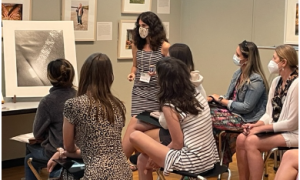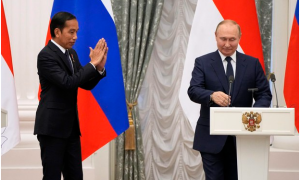attend, attend to
这两者都可译为“出席”,但含义上有区别:attend指“人”去了, attend to则进一步指“心”去了,介词to在这里指“集中注意力于…”,例如:
He attended school, but didn't attend to his lessons.
他去上学,但不把功课放在心上。
He did attend the lecture this morning, but somehow he did not seem to attend to it.
今天上午他的确去听课了,可是不知 怎的他似乎心不在焉。
attend on, attend to
这两个短语的区别是:
1.attend to是“照料”的意思, attend on是“侍候”的意思。介词to表示对象,而on则进一步表示目的,含有使其满意的意味。
2.attend on的宾语只是人, attend to的宾语可以是人,也可以是物。
3.attend to还含有“认真听”“认真干”的含义。
attend, be present
这两者都可译为“出席”。二者的区别是:attend强调的是过程, be present强调的是状态。例如:
I attended a meeting this morning.
今天上午我参加了一个会议。
He was present at the scene.
他当时在场。
attend, mind, tend, watch
这组词都有“照料(某人或某物)”的意思,在含义上略有不同:attend侧重“服侍使其更舒服”; mind侧重“保护其不出意外,不受损害”; tend侧重“注意某事使其正常运转”; watch侧重“预先做好防止发生危险的准备”,有连续性或专职性。例如:
He attended her through her illness.
她生病期间他一直照顾着她。
There was nobody left to mind the shop.
没人留下看守店铺。
A farmer is tending his sheep.
农夫在照看羊群。
There was a policeman watching the pri- soner outside the house and making sure he didn't escape.
有位警察在监狱外监视那个犯人以 防他逃跑。
attend, heed, mind, note, notice
这组词都可表示“注意”或“详细观察”。它们的区别在于:
1.mind强调“用心”“全心全意”,多用于祈使句中。例如:
Mind that you don't forget to tell him.记住,别忘了告诉他。
Mind out, there's a car coming.小心,一辆汽车开过来了。
2.attend指把注意力集中在某事上而不分心、不走神,常后接介词to。例如:
Peter attends school, but doesn't attend to his lesson.彼得上学去了,却没认真听课。
He attended to his business.他专心于他的事务。
He didn't attend to the point you spoke of.他没有注意到你说的要点。
3.heed强调注意某件事的过程,是正式用语,多用于书面语。例如:
If she heeded what the teacher told her, she might make better progress.如果她多留意老师对她说的话,她也许会有更大的进步。
She countered that her advice had not been heeded.她反驳说她的建议未被重视。
4.notice指偶然一眼无意识地注意到了某个细节,而此细节对一些大的格局来说可能很是重要的。例如:
He slipped away when we were not noticing.我们没注意时,他就溜走了。
He didn't notice you when you passed by.你走过时,他没有注意到你。
I noticed with great satisfaction that you made great progress.我很满意地看到,你取得了很大的进步。
5.note既可像notice那样觉察到某个细节,又可像attend, heed那样付出注意力,专心于某事,多用于祈使句中,且语气较强。例如:
The president's every word was noted down.总统的每句话都被记录下来。
Note how I do it, then copy me.注意看我是怎么做的,然后照着做。
Note when the machine will stop.注意这台机器什么时候停。
attend, accompany, escort
这组词都有“陪伴,陪同”的意思,它们的区别是:
1.accompany和escort指的是一般行为,表示“同时性”,或者作为一种友好的表示。陪伴的对象可为比自己地位高的人,也可是与自己平级的人。accompany仅表示友好,而escort更强调礼仪。
2.attend指的是职务行为,常用于陪伴地位比自己高的人,含有“照料,服侍”的意思,强调“目的性”,如护卫、礼仪等。
3.escort可作“护卫、护送”解,主语可以是人,也可以是物; accompany和attend均无此义。
attend, mind, take care of
三者共同的意思是“关心”或“照顾”。它们的区别在于:
1.mind多指暂时的而不是长期的看管。例如:
Will you please mind the baby?请你照管一下这孩子好吗?
Mary minded my shop while I was at lunch.当我午餐时,玛丽帮我照看商店。
2.take care of强调要付出爱心。例如:
Don't worry,I'll take care of you.别担心,我会照顾你的。
Mother stayed home to take care of my baby.妈妈留在家里照料我的孩子。
Take care of the public property, please.请爱护公物。
3.attend强调职业性地,全心全意地去“关心”或“照顾”。例如:
She attended on the wounded soldier day and night.她日夜护理受伤的战士。
attend, join, participate, take part in
这组词(组)都可作“参加”解。它们的区别是:
join指参加某团体或组织成为其中一员或参加活动,是非正式用语。attend主要指“到场”或“出席”会议、宴会、典礼、仪式等。例如:
He never attended a funeral.他从不参加丧礼。
participate是不及物动词,后接in,指参与活动并积极从事工作,是正式用语。例如:
I'll try to follow your advice about participating in students' activities.我尽量遵照你的劝告,参加学生的活动。
take part in指参加一项工作,在其中分担一部分,也指参加活动并积极工作。例如:
I'm not going to take part in arguments.我不打算参加辩论。
注意以下句子的含义和用法的不同:
The doctor attended a patient.
(attend sb)
医生在一定时期经常地给病人看病。
The doctor attends to a wound.
(attend to sth)
医生治伤。
The doctor attended to a patient.
(attend to sb)
医生把注意力转向伤员并予以治疗。
accompany,conduct,attend,escort
这些动词均有“陪同,伴随”之意
accompany既可指人也可指物。用于人时,侧重关系紧密或同时发生。
conduct无论用于人或物均指引导带领。
attend侧重主从关系,即下级对上级,学生对老师等,或表恭顺、服侍。
escort通常指用车或人在陆上伴随、护送,其目的是保护或出于礼节。
attend,join,participate,take part in
这些动词或词组都含“参加,加入”之意。
attend侧重参加或出席会议或学术活动等。
join普通用词,指加入党派、团体或游戏活动等。
participate正式用词,特指参加团体活动,暗示以一个积极的角色参加。
take part in侧重参加某项群众性、集体性的事业、工作或活动,突出参加者在其中发挥一定的作用。
notice,note,mind,attend,remark
这些动词都含“注意”之意。
notice指对所见、所闻、所感的人或事作出的反应,侧重结果。
note语气比notice强,指不仅注意到,而且记录下来,侧重注意的认真与仔细。
mind指用心地去观察,了解某人或某物以达到某一目的,常用于命令句中。
attend一般用词,侧重专心于某事。
remark一般指经过思维活动而注意到。










